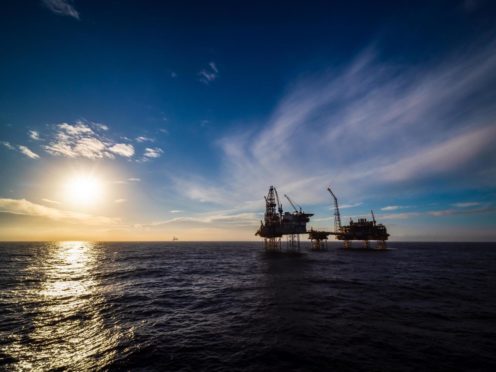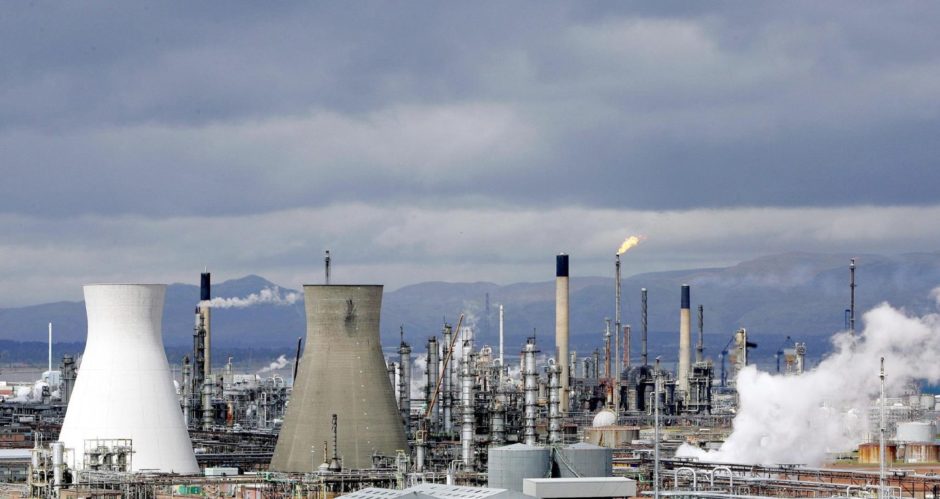Unfortunately, it turns out that the people who warned about climate change in the 1990s were mostly right.
Indeed, the scale of recent heatwaves and floods shows they were only really wrong about the speed of climate breakdown.
We can’t afford to be fatalistic about it, though. The less oil and gas we burn, the better for everyone.
So what are Scottish Ministers doing about that?
In the summer before the 2014 referendum, when Alex Salmond was at the height of his powers, the Scottish Government set out its national planning framework.
In it, Ministers observed that “there will be significant opportunities for increased production from oil and gas reserves in the West of Shetland and northern North Sea”.
Even worse, their energy strategy committed them to “maximising the recovery of remaining resources” from the North Sea.
That’s code for “burn as much as we can and sod the climate”. It’s still current in all sorts of Scottish Government policy documents, like a rude word running through a stick of rock.
Oil and gas at odds with climate ambitions
It is more than a little jarring as Scottish Ministers prepare for the global climate conference to come to Glasgow in a few months.
A new version of that planning document is due soon. It’s vital that it drops the commitment to maximum extraction.
Parliament correctly agrees the transition away from fossil fuels should be done in a just way, unlike the demolition of industry in the early 80s.
It’s just a shame there’s no will to even begin that transition process. In fact, neither UK nor Scottish Ministers have even opposed the idea of opening up a whole new oil field off Shetland.
In 100 days Glasgow welcomes #COP26, the world’s biggest summit on climate change.
Countries from around world will agree action to tackle the global climate emergency.
We need everyone to play their part. Find out what you can do ➡️ https://t.co/qlTr2QGosu #LetsDoNetZero pic.twitter.com/Ck6UMOdCFM
— Net Zero Scotland (@ScotGovNetZero) July 23, 2021
Building more renewables is great. But what transition really means is moving to drill and burn as little oil and gas as possible.
That process should have started in the 1990s, but didn’t. Nor did it in either of the two decades thereafter.
The decline in output since 1999 isn’t because of wise policy decisions – it’s just the largest fields being exhausted.
This delay means the transition will have to be steeper than it could have been. And it’s getting steeper every day.
Charting a future beyond oil and gas
In my fantasy alternate timeline we would have closed down all the North Sea oil and gas fields by now, with all that skilled workforce working on wind, solar and tidal power.
That’s what most of the oil and gas workforce want, surveys show.
The usual response is that “it’s up to Westminster”.
Which leads to the next question: so why have Scottish Ministers had a policy of maximising extraction?
If planning law could be used at Holyrood to end the nuclear era north of the border, it could now be used to mark the end of the SNP’s love affair with fossil fuels
Oil and gas licensing is indeed reserved to Westminster.
So was nuclear energy, though.
Scottish Ministers rightly blocked new nuclear plants more than a decade ago, using devolved powers.
If planning law could be used at Holyrood to end the nuclear era north of the border, it could now be used to mark the end of the SNP’s love affair with fossil fuels.
Grangemouth plan was a non-starter
That bizarre Salmond-era planning document is actually worse than inaction.
He committed the Scottish Government to supporting a new coal-fired power station at Grangemouth.
The theory was this plant would use carbon capture and storage, an oil industry mirage.
Fortunately, the economics of renewables saved us from that particular blunder, and the plans never even got onto the drawing board.
If Scottish Ministers accept the science of climate change, as I believe they do, it’s time to change all these policy documents, and then act like they mean it
Scotland wouldn’t even be ahead of the curve. We’d be somewhere around the middle.
Many countries have begun the transition. In December last year, Denmark ended all licensing for new oil and gas.
Ireland followed this February, as part of the deal Greens struck. New Zealand made a similar announcement in March, again because Greens are in government.
Opportunities in decommissioning
One simple change would be adopting a presumption against giving planning permission for new oil and gas infrastructure.
There will be a lot of jobs in decommissioning the infrastructure already out there, including in Dundee, which will help.
I’d prefer the Scottish Government – and indeed Westminster – to commit to minimising North Sea oil and gas extraction, not maximising it.
But I’d settle for seeing them end the Salmond-era commitments to prop up the oil majors at the expense of our future.
Continuing to plan for increased fossil fuel extraction only benefits oil company shareholders. It is also a disservice to all those in the workforce who want out.
This country has done very well out of fossil fuels for more than two centuries.
And, much as people were unaware of the consequences for much of that period, the price has been paid on a global scale.
It’s now time for us to draw a line under the oil era and to start contributing to the world’s most urgent collective project – ensuring a habitable planet.
James Mackenzie is a freelance media and public affairs consultant and former head of communications for the Scottish Greens.
OPINION: Plastic waste isn’t your fault, that’s just what big business wants you to think


